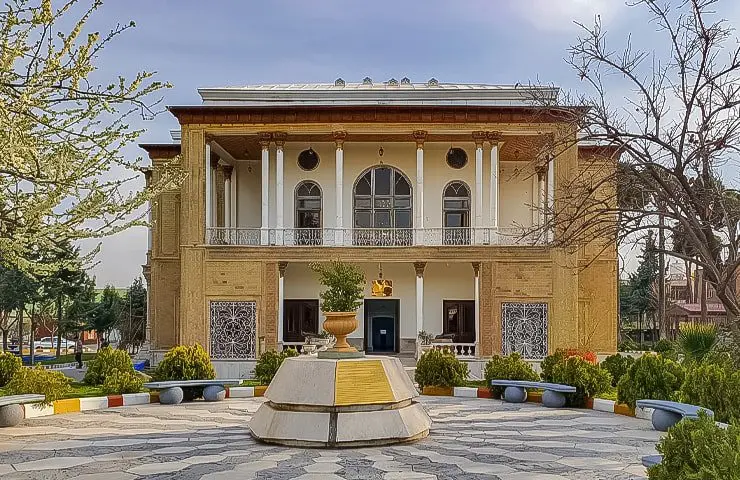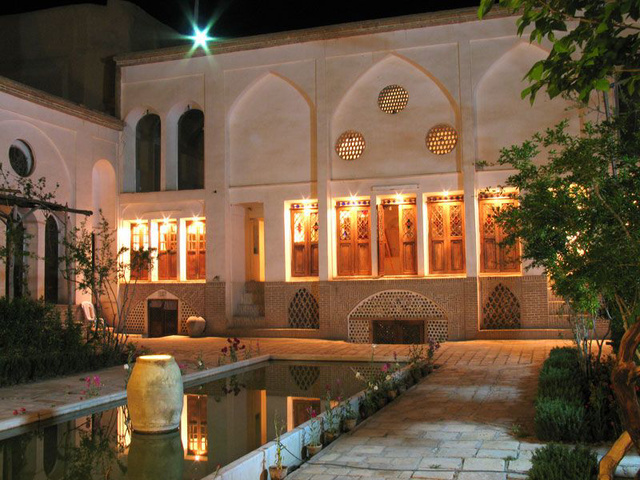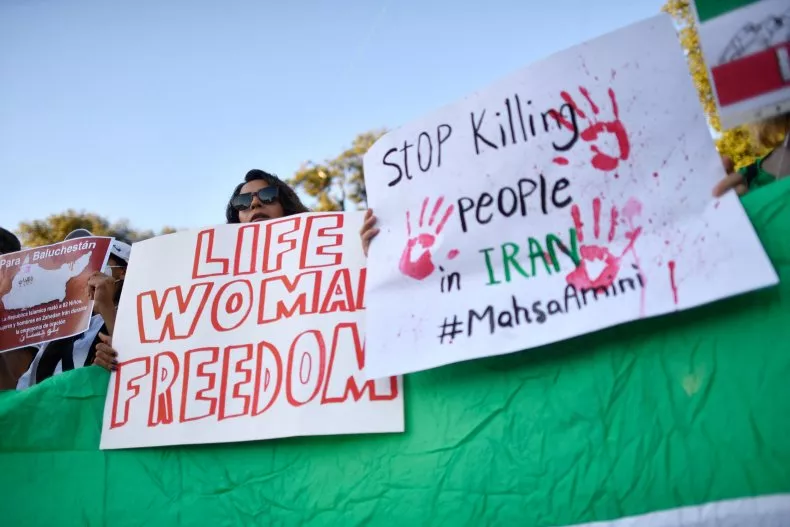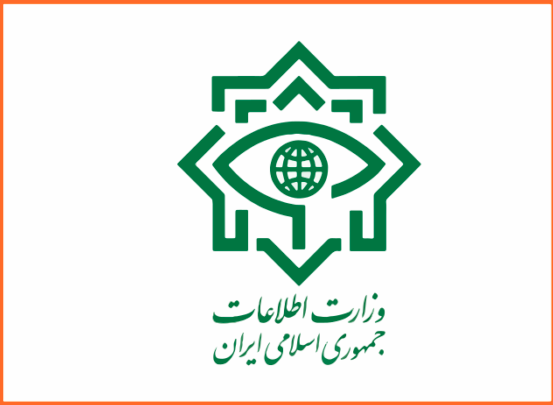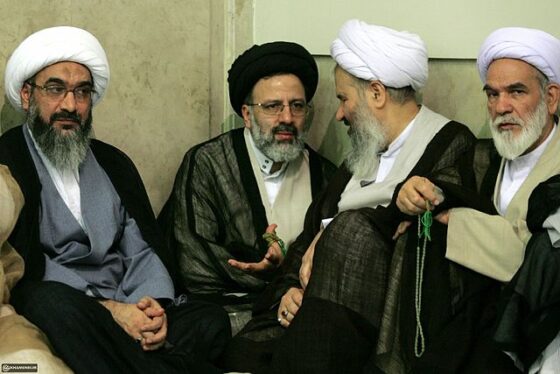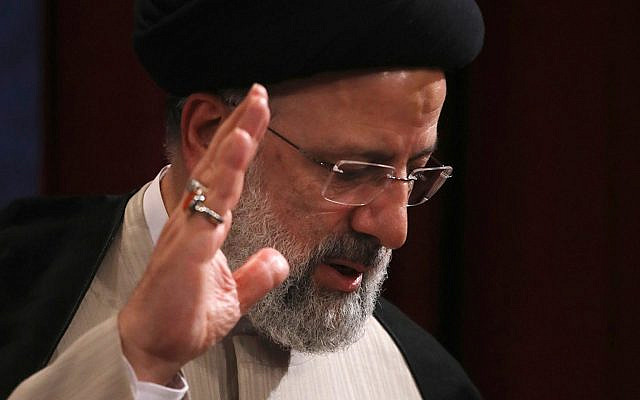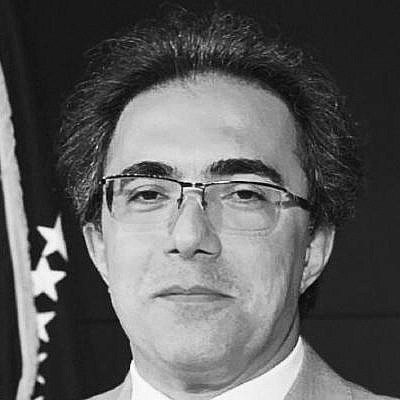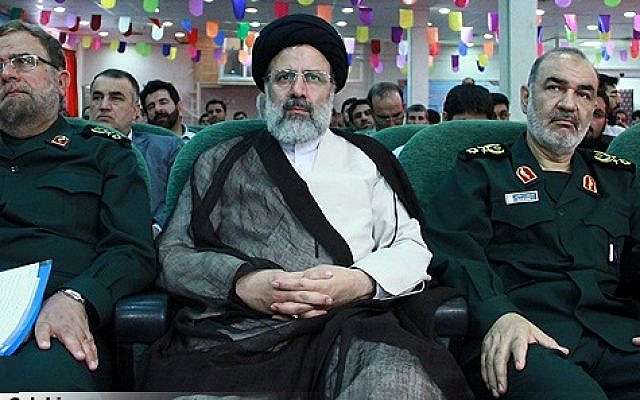Iran plane crash: Why this could be a watershed moment
Published on: 2020-01-12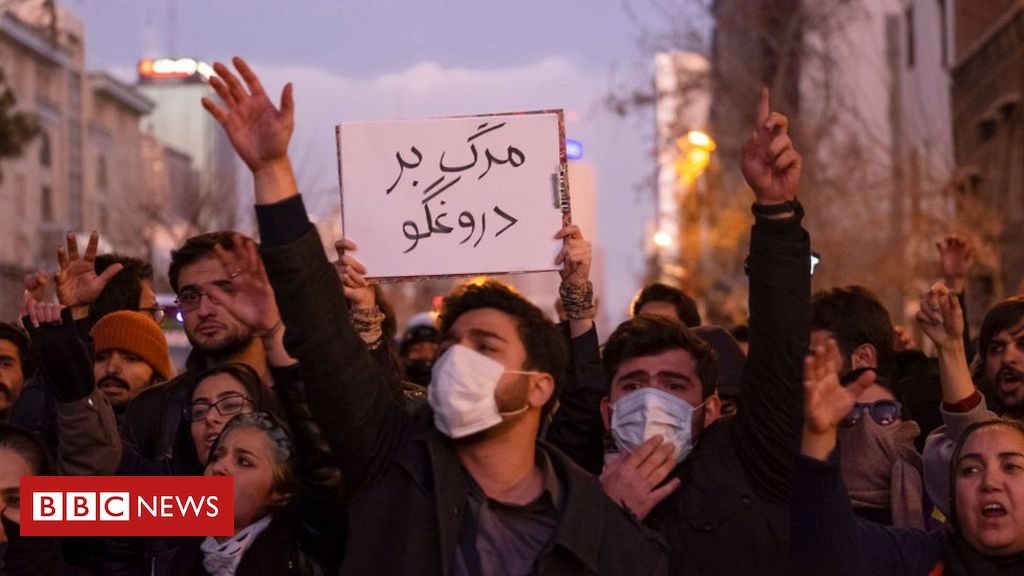
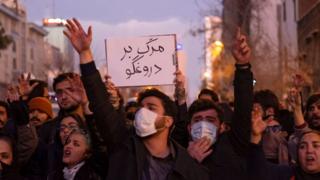 Image copyright
Image copyright
Getty Images
Iranians were angered by officials who initially denied shooting down a plane outside Tehran
After days of denial, the Iranian authorities admitted that a crash involving a Ukrainian International Airlines jetliner was caused by human error.
The incident on Wednesday came just hours after Iran had launched a series of ballistic missiles at Iraqi bases hosting US troops, in a bid to avenge the killing of senior commander Qasem Soleimani.
It was amid these high tensions, Iran says, that an air defence operator misidentified flight PS752 as a cruise missile and shot it down, killing all 176 people on board.
While Iran initially denied responsibility, US and Canadian intelligence agencies soon uncovered evidence that one of the country’s surface-to-air missile had caused the accident. This led to significant international pressure for Iran to openly investigate the case.
Tehran’s decision to reverse its initial statements and take full responsibility for the downing of the plane provoked a positive response from several countries, including those whose passengers were onboard – Canada, the UK, Germany, and Sweden.
The admission of guilt was ultimately read as a positive first step.
But officials from these governments also said the admission should be followed by constructive behaviour from Iran. This would likely mean it pursuing a transparent investigation, the repatriation of the bodies and compensation for the victims, as well as taking the necessary steps to ensure similar tragedies are averted in future.
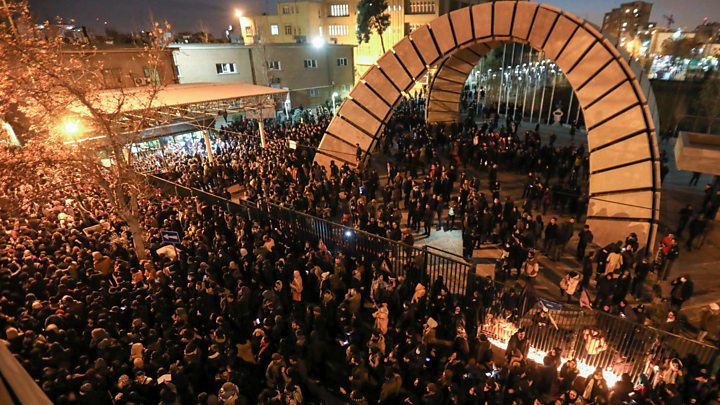
Media playback is unsupported on your device
On the international front, the downing of flight PS752 is unlikely to result in further escalation and might even provide an opportunity for defusing some of the tensions which have been simmering over the past few months.
On the domestic front, however, this tragic accident could have much deeper repercussions.
Just days before the flight crashed, Iran displayed an unprecedented level of unity and popular support when millions of people poured on to the streets all over the country to mourn the death of Soleimani.
This seemed to indicate that, when faced with the external threat of military confrontation, Iranians from different political and economic backgrounds could come together and put aside their divisions.
Image copyright
Getty Images
Millions of Iranians mourned the death of top general Qasem Soleimani in a US drone strike
But the shooting down of flight PS752 and the subsequent denials from the authorities could lead these divisions to re-emerge and become even sharper.
While the admission of guilt could assuage some of the popular criticism towards the grave mishandling of the situation, the establishment might still be perceived as having tried to hide evidence and avoid responsibility before international pressure mounted on Iran to come clean.
This is likely to revive the divisions and unrest that erupted in November when the Iranian government approved a sharp spike in fuel prices. This move triggered large demonstrations across the country and resulted in widespread repression and the killing of at least 300 people.
While acknowledging the truth is an important first step, the Iranian people will likely demand accountability and the prosecution of those responsible, as well as the adoption of all the steps needed to ensure this does not happen again.
They will also pay attention to how the victims of the air crash are treated by the Iranian elite. An important test here is whether their funerals will result in national mourning, similar to that of Soleimani, or instead be largely ignored.
Image copyright
Alamy
All of these demands will be added to previous grievances over the state of the economy and the limitations on some social freedoms.
Parliamentary elections are due to take place in just over a month and internal discord over this crash could lead to further unrest. Plus, tension with the West has abated but is far from over.
The way in which the government and the rest of the establishment handle the broader repercussions of this plane crash could be a watershed moment for Iran. The choices it makes are likely to reverberate throughout Iranian politics and society for months, or even years, to come.

